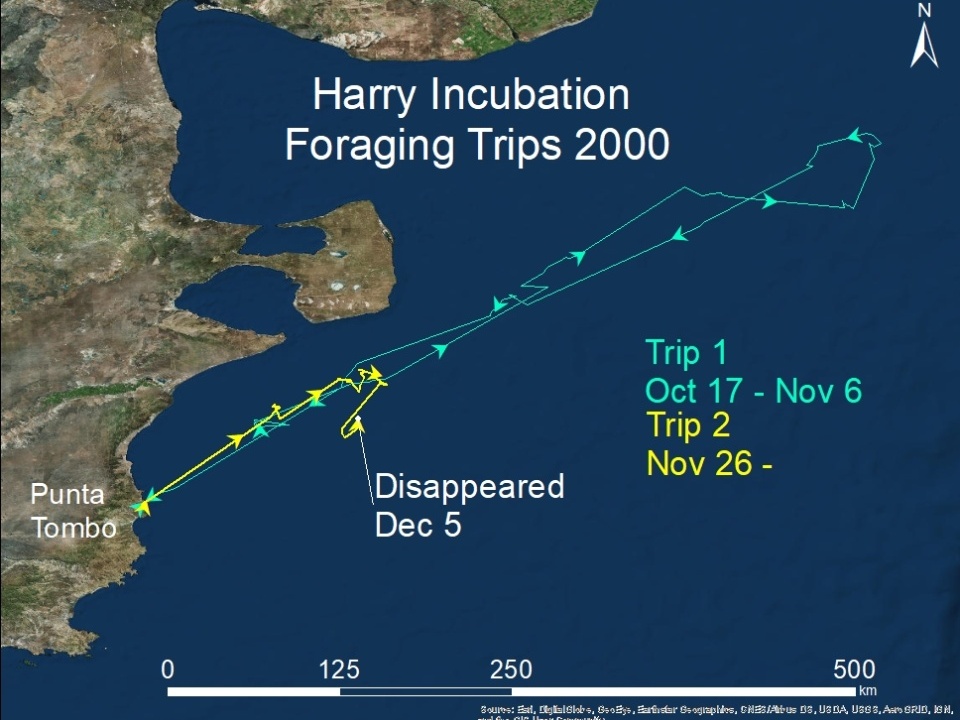Meet Harry
Learning from Loss
Harry, a male Magellanic penguin, was banded as an adult in 1984. We followed Harry every year for the rest of his life. He used eight different nests over his lifetime, but returned to the same nest for six seasons. He had several mates, but the same mate from 1991 to 1995. In the 17 years we followed Harry, he bred 16 times and raised seven chicks! Only 180 of more than 4400 males we have followed raised more chicks, making him an outstanding penguin parent.
Unfortunately, Harry was not the only penguin lost in 2000 as more than 3,400 penguins and many other seabirds washed up dead on the beaches of Argentina between October and December. The harmful algal bloom that struck Argentina in 2000 is known as a “red tide” because of the color of the plankton that make up the bloom. Algal toxins are absorbed by shellfish, zooplankton, and filter-feeding fish, and accumulate as they move up the food chain to fish and squid that penguins eat. The concentrated toxins in their food sicken or kill penguins. We would not have known about this large mortality event without the satellite tags and the untimely deaths of healthy penguins. Through Harry’s sudden death, we learned a lesson about the hardships that penguins face.
Read how Harry helped us understand the impact of harmful algal blooms on penguins or learn more about sponsoring a penguin through our Magellanic penguin VIP Program and helping us continue our research on the Magellanic penguins of Punta Tombo.
